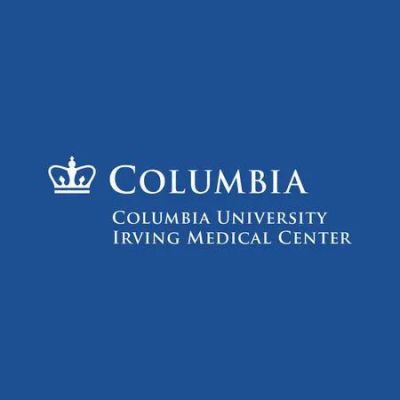- 1-relationship-between-heart-disease-and-cholesterol
- 2-importance-of-diet-in-managing-cholesterol
- 3-key-components-of-a-heart-healthy-diet
- 4-foods-to-limit-or-avoid-for-cholesterol-control
- 5-lifestyle-factors-complementing-dietary-guidelines
- 6-real-life-success-stories-and-case-studies
- 7-practical-tips-for-implementing-diet-guidelines
The Relationship Between Heart Disease and Cholesterol
Understanding the link between heart disease and cholesterol is fundamental to adopting effective dietary guidelines. Cholesterol, a fatty substance found in the blood, plays a vital role in building cells, but excessive levels, particularly of low-density lipoprotein (LDL), contribute to plaque buildup in arteries. This buildup narrows arteries, leading to atherosclerosis, which significantly raises the risk of heart attacks and strokes.
High cholesterol often goes unnoticed until heart disease symptoms manifest, which makes diet and preventive care critical. The good news is that by managing cholesterol through lifestyle and diet, individuals can reduce their heart disease risk substantially.
Importance of Diet in Managing Cholesterol Levels
Diet is one of the most powerful tools to control cholesterol and support heart health. Scientific studies have repeatedly shown that certain dietary patterns help lower LDL cholesterol and improve overall cardiovascular function. Conversely, poor eating habits can elevate cholesterol and exacerbate heart disease progression.
By focusing on nutrient-rich foods, healthy fats, and fiber, people can favorably influence their blood lipid profiles. Moreover, diet impacts other heart disease risk factors, such as blood pressure and inflammation, providing a comprehensive approach to heart care.
Key Components of a Heart-Healthy Diet
A heart-healthy diet emphasizes:
- Fruits and Vegetables: Rich in antioxidants and fiber, they help reduce cholesterol absorption.
- Whole Grains: Sources like oats and barley contain soluble fiber, proven to lower LDL cholesterol.
- Healthy Fats: Unsaturated fats found in nuts, seeds, avocados, and olive oil support heart health.
- Lean Proteins: Fish, especially fatty fish rich in omega-3 fatty acids, and legumes are excellent choices.
- Limiting Saturated and Trans Fats: Reducing intake of these fats found in fatty meats and processed foods prevents cholesterol spikes.
Incorporating these elements fosters cardiovascular resilience and long-term health benefits.
Foods to Limit or Avoid for Effective Cholesterol Control
To support heart disease and cholesterol diet guidelines, it is essential to limit or avoid:
- Processed Meats: High in saturated fats and preservatives detrimental to heart health.
- Fried and Fast Foods: Often containing trans fats that raise harmful cholesterol.
- Full-Fat Dairy: Can contribute to increased LDL cholesterol if consumed excessively.
- Refined Sugars and Carbohydrates: Promote inflammation and may indirectly worsen cholesterol levels.
- Excessive Alcohol: Can elevate triglycerides and negatively affect heart health.
Mindful eating helps reduce cholesterol buildup and protects arterial function.
Lifestyle Factors That Complement Dietary Guidelines
While diet plays a central role, integrating healthy lifestyle habits amplifies heart disease prevention and cholesterol management. Regular physical activity improves HDL (“good” cholesterol) levels and supports weight control. Avoiding smoking reduces arterial damage, and managing stress through mindfulness or therapy decreases heart disease risk.
Additionally, adhering to prescribed medications when necessary ensures comprehensive care. These lifestyle choices work synergistically with diet, creating a robust defense against heart disease.
Real-Life Success Stories and Case Studies
Many individuals have transformed their heart health by following cholesterol-conscious diets. Take John, a 55-year-old with high LDL cholesterol and family history of heart disease. By adopting a Mediterranean-style diet rich in vegetables, nuts, and fish, and limiting saturated fats, John lowered his LDL by 30% within six months and reported improved energy and wellbeing.
Stories like John’s illustrate that dietary changes are not just theoretical but deliver tangible health outcomes, encouraging others to take proactive steps.
Practical Tips for Implementing Heart Disease and Cholesterol Diet Guidelines
Starting and maintaining a heart-healthy diet can be straightforward with the right approach. Here are some tips:
- Plan Meals Ahead: Preparing balanced meals reduces temptation for unhealthy choices.
- Read Labels: Check food packaging for saturated fat, trans fat, and cholesterol content.
- Experiment with Flavors: Use herbs and spices to enhance taste without added salt or fats.
- Stay Hydrated: Drinking water supports metabolism and overall health.
- Seek Support: Engage family and friends or consult with nutritionists to stay motivated.
For additional guidance, products, and resources to support your heart-healthy lifestyle, visit HeartCare Hub, your trusted partner in cardiovascular wellness.




















